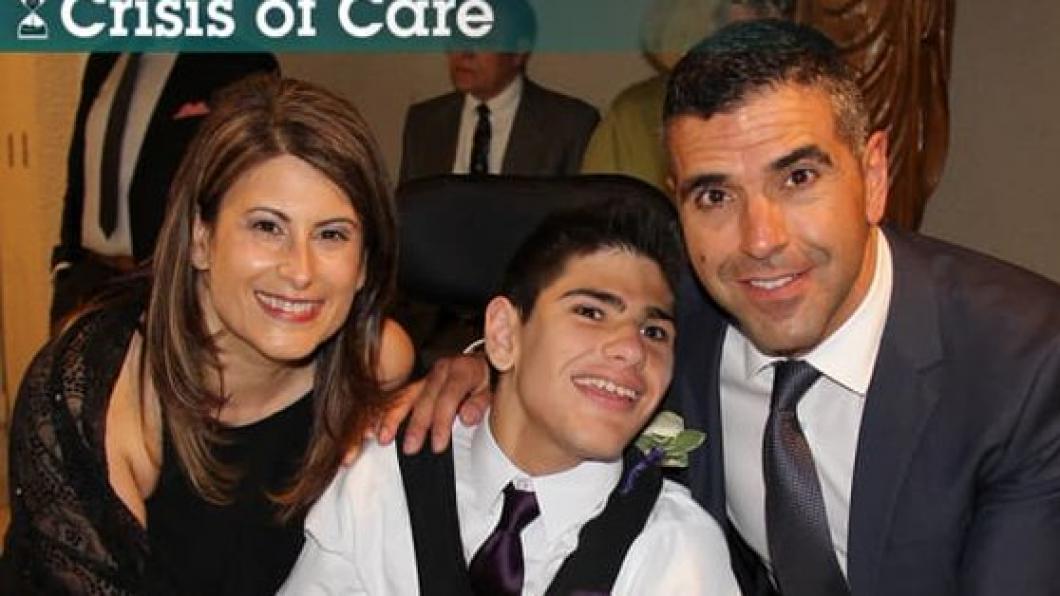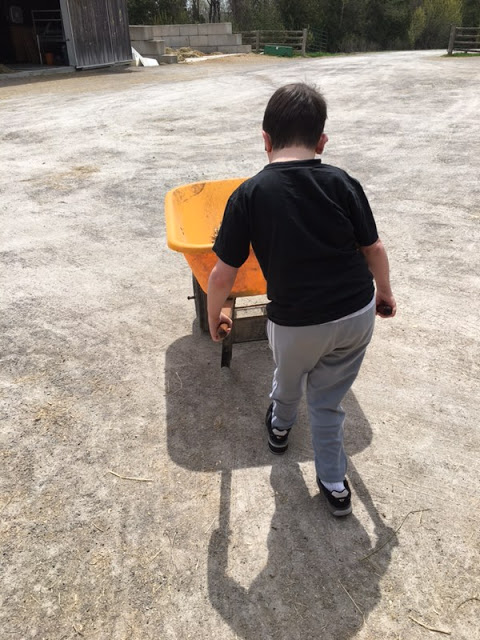
The care crisis that should shake us all
By Louise Kinross
If you didn't see this CBC White Coat, Black Art town hall on the crisis facing youth with complex disabilities aging out of the services and funding they and their families depend on, it's well worth the listen. It's packed with firsthand stories from parents, a young adult with a disability and experts in children's rehab, education, mental health and law, a couple of whom have siblings with disabilities.
You know how I can tell it's the best thing I've heard on the topic? As a parent, I was shaken after listening to it, and I still am.
It was three years ago that I found myself writing to the deputy minister of Ontario's Ministry of Community and Social Services, our MPP, the ombudsman and all kinds of people within the bureaucracy. My own son was leaving school and we had no funding to support what he would do during the day.
We had registered with Developmental Services Ontario three years earlier, but the person who came out to do the four-hour assessment told us at the end of it that there was no money. The Ministry had frozen new money for Passport funding, which is the main way to access money for a support worker so that your child can volunteer or do a work program or fill their day with a passion. There were no government-funded programs available to us.
At a time when most parents are sending their children off to college, I needed to help my son carve out a good life, while I continued to work outside the home.
Today, he does farm chores at Windreach Farm on Mondays and Fridays. Horses on Mondays, and chickens on Fridays. On Tuesdays and Wednesdays he cleans at Variety Village. On Thursday he goes to an arts program at L'Arche.
In the fall after my son graduated, after an extraordinary amount of advocacy, the likes of which I'd never needed in the children's system, we received a small amount of Passport funding, certainly nowhere near sufficient to cover our worker hours Monday to Friday.
Remember, I'm someone who's worked in the field since 1999. I have connections. If that was the best I could do, what happens to the parent who doesn't speak English, or isn't able to fit extreme advocacy into their day?
Over the next two years I fought to have that funding increased. This year it is at an adequate level, and for that I am very grateful. Actually, it's a mix of guilt and gratitude. I feel guilty that many families have not received this funding. I feel guilty for the numerous times I was told by government gatekeepers that other families had real problems—their kids were homeless or the parents were dead. Because that's the way the system plays parents off each other. I can't count the number of times a government employee told me that unfortunately, in the adult system, we have to wait for someone to die to open up resources.
But funding is always tenuous, especially with our new government. And we have no leads on supported housing for our son when we are no longer here.
So when I listened to Rose Canto, above with son Matthew, talk with Dr. Brian Goldman about not knowing how to fill his day when school ends at 21, I felt a familiar sense of panic. I felt wobbly.
The degree to which this system brings parents to their knees can not be overstated.
Our children are valuable members of society and some of them require similar supports as adults. That many will instead sit at home all day, in front of the TV, with a parent, should shake us all.
